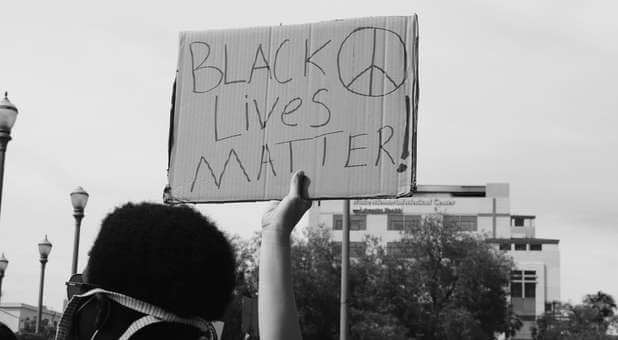A “Black lives matter” movement erupted in 18th-century colonial America that is generally ignored by modern historians. This movement breached racial and cultural barriers in colonial America and unleashed the spiritual and moral forces that eventually brought about the end of slavery on this continent.
Instead of anger and political rhetoric, this movement was characterized by passionate faith and love that flowed out of hearts that had been transformed through the preaching of the gospel in a great, spiritual awakening. This “Great Awakening,” as it has been called, transformed colonial America and profoundly impacted the attitude of the populace about slavery and race.
Benjamin Franklin told how the Awakening transformed his hometown of Philadelphia when George Whitfield preached there in 1739. He wrote,
It was wonderful to see the change soon made in the manners of our inhabitants. From being thoughtless or indifferent about religion, it seemed as if all the world were growing religious so that one could not walk through the town in an evening without hearing psalms sung in different families of every street (Hyatt, 1726: The Year that Defined America, 79).
That Blacks and whites worshipped together in this awakening is made clear by Whitefield’s account of the same revival. This is documented on page 70 of the book 1726, in the following paragraph.
After preaching his farewell sermon to a massive crowd gathered in front of the Philadelphia courthouse, Whitefield noted in his Journal, “Near 50 (term formerly used to describe African Americans) came to give me thanks for what God had done for their souls.” Whitefield considered this an answer to prayer, saying, ‘I have been much drawn in prayer for them, and have seen them wrought upon by the word preached.'”
Whitefield, Jonathan Edwards, Gilbert Tennant and other early revivalists of the Awakening, all speak of the response of Blacks, both slave and free, to the gospel message that was spread far and wide during the awakening.
For example, Samuel Davies (1723-1761) gave special attention to Blacks, both slave and free, during his time of ministry in Virginia and found them especially responsive to the gospel message. In 1757, he wrote,
“What little success I have lately had, has been chiefly among the extremes of gentlemen and (term formerly used to describe African Americans). Indeed, God has been remarkably working among the latter. I have baptized 150 adults; and at the last sacramental solemnity, I had the pleasure of seeing the table graced with 60 Black faces (Hyatt, 1726: The Year that Defined America, 70).
At the beginning of the Awakening in 1726, outreach to the Black population was evangelistic in nature; it was not characterized by opposition to slavery. The early preachers, such as Whitefield, Tennant and Edwards, saw their primary purpose to be in getting people ready for the next world, not necessarily improving their lot in this one. In their thinking, a slave on his way to heaven was far better off than a king on his way to hell.
Nonetheless, the inclusive gospel message they preached and their sharing of Christian fellowship with Blacks broke down racial barriers and created a climate conducive to the anti-slavery sentiments that would burst forth through the second-generation Awakening preachers.
The Attack on Slavery Begins
Evangelists who came after Whitefield, Edwards, Tennant, Davies and others carried the message of their predecessors to its logical conclusion: if we are all creatures of the same Creator and if Christ died that all might be saved, then how can slavery ever be justified? The movement thus took on an anti-slavery component and spread throughout the colonies.
Samuel Hopkins (1721–1803), for example, who had been personally tutored by Edwards, pastored for a time in Newport, Rhode Island, an important hub in the transatlantic slave trade. His response to what he saw in Newport was like Paul’s response to the idols in Athens.
Paul’s spirit was “provoked” by the idols of the Athenians, and Hopkins was offended and outraged by the “violation of God’s will” he saw in Newport. He began passionately preaching against slavery and declared, “This whole country have their hands full of blood this day” (Hyatt, 1726: The Year that Defined America).
In 1774, after the First Continental Congress had convened in Philadelphia, Hopkins sent a pamphlet to every member of the Congress, asking how they could complain about “enslavement” to England and overlook the “enslavement” of so many Blacks in the Colonies. He was, in effect, saying, “Black lives matter!”
As liberty became a watchword throughout the Colonies, the preachers of the Awakening began applying it to the enslaved in America. Like Hopkins, they pointed out the hypocrisy of demanding freedom from England while continuing to uphold the institution of slavery in their midst.
In a sermon preached and published in 1770, Samuel Cooke declared that by tolerating the evil of slavery, “We, the patrons of liberty, have dishonored the Christian name, and degraded human nature nearly to a level with the beasts that perish.” The Baptist preacher, John Allen, was even more direct, and thundered,
“Blush ye pretended votaries of freedom! ye trifling Patriots! who are making a vain parade of being advocates for the liberties of mankind, who are thus making a mockery of your profession by trampling on the sacred natural rights and privileges of Africans” (Hyatt, 1726: The Year that Defined America, 93-94). {eoa}
Dr. Eddie Hyatt and his wife, Dr. Susan Hyatt, have been married 44 years. They have established the International Christian Women’s Hall of Fame on Main Street in Grapevine, Texas. Both are prolific authors and have written numerous books on church, spiritual awakening and issues related to male/female relationships. Their books are available from Amazon and their websites at godswordtowomen.org and eddiehyatt.com.
For the rest of this article, visit biblicalawakening.blogspot.com.











































